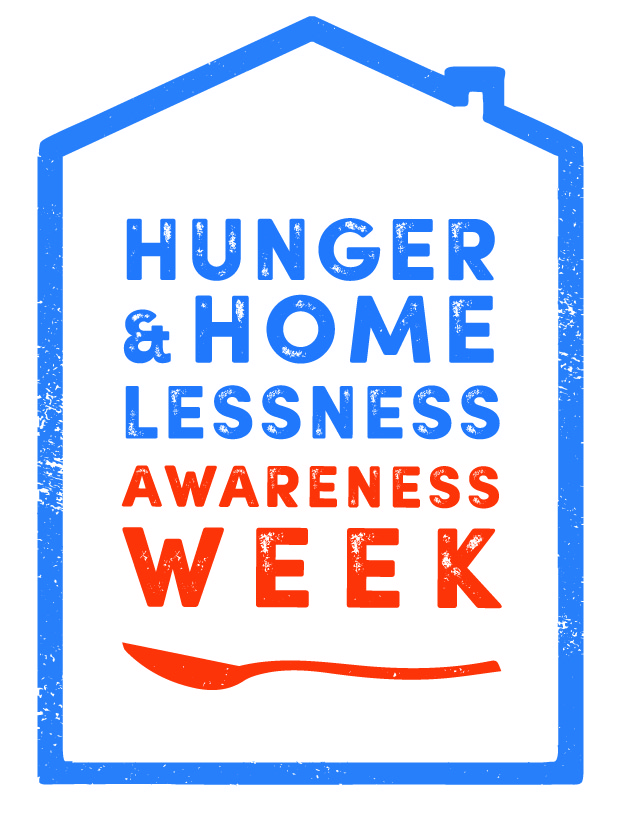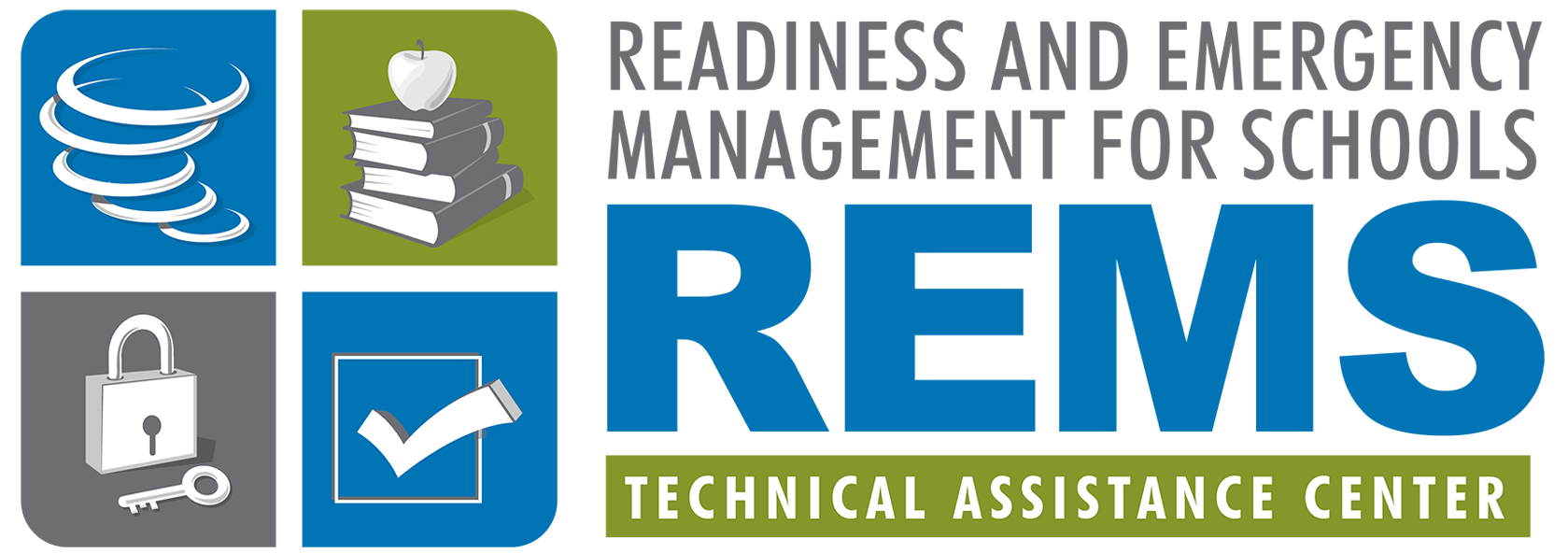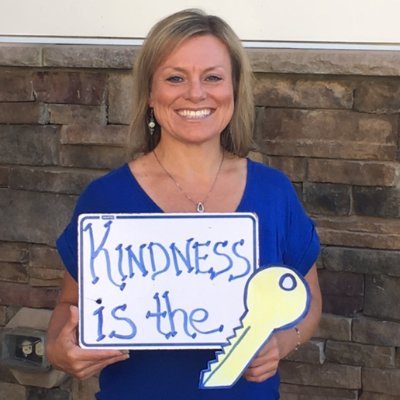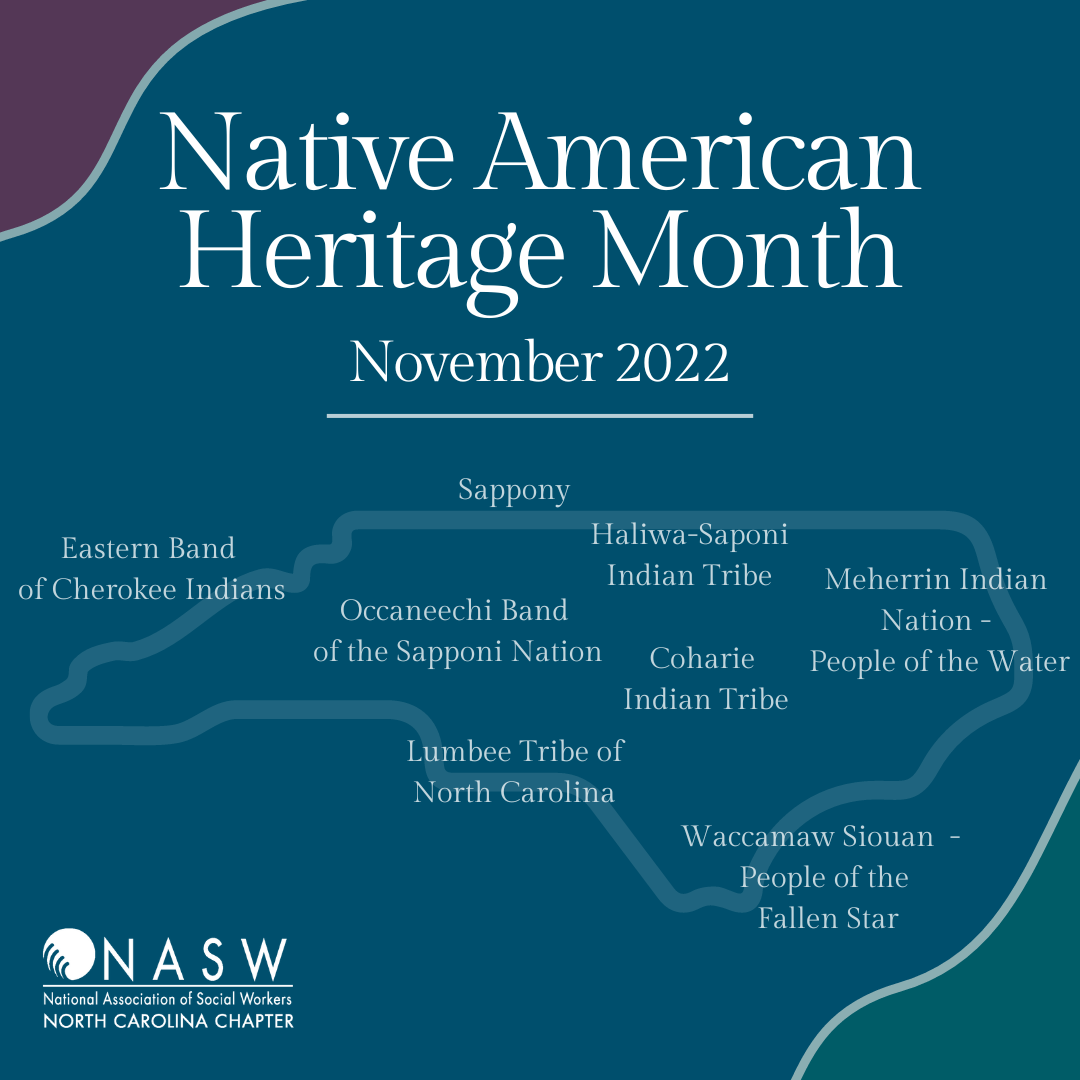North Carolina Public Schools - School Social Work November Update
North Carolina Public Schools sent this bulletin at 11/07/2022 12:59 PM EST |
 |
Homeless Awareness Month
November was first declared as National Homeless Youth Awareness Month in 2007. Since then, November has been a time to acknowledge those children and families experiencing homelessness. As many as 2.5 million youth per year experience homelessness. Along with losing their home, community, friends, and routines as well as their sense of stability and safety, many homeless youth are also victims of trauma. While trying to survive on the streets, youth are exposed to countless dangers, with an increased likelihood of substance abuse, early parenthood, impulsivity, depression, post-traumatic stress disorder, and a vulnerability to being trafficked.
The National Child Traumatic Stress Network (NCTSN) has compiled a list of helpful resources for parents and caregivers, children and teens, mental health providers, schools, child welfare workers, juvenile justice professionals, and policymakers.
 |
November 12-20 is Hunger and Homelessness Awareness Week Every person deserves food on their plate and a roof over their head. This Hunger and Homelessness Awareness Week, is an annual opportunity to shine a spotlight on the problems of hunger and homelessness and organize our communities to take action. You can join the movement to end poverty. Just take out time this week to address hunger and homelessness in your community. More here. |
|
November is National Runaway Prevention Month (NRPM), a public awareness campaign designed to “shine a light” on the experiences of youth who have run away and experienced homelessness that too often Research shows that 4.2 million young people ages 13 to 25 experience some form of homelessness each year in the United States, with considerably more experiencing crises that put them at risk of facing similar housing insecurity. Think about it this way: |
 |
This toolkit is designed for community-based organizations, advocacy groups, programs serving youth experiencing homelessness, schools, and others committed to supporting vulnerable youth. It contains resources to help you successfully engage with stakeholders to build awareness of the issues youth face every day when living in the streets or other unsafe places.
FYBS Bonus Fact Sheet: Integrating Effective Practices to Identify Youth Victims of Human Trafficking. (PDF) This fact sheet provides organization serving vulnerable youth with strategies for integrating effective approaches for conducting a human trafficking assessment. More from FYSB
Resource Alerts: National Center for Rural Mental Health
Cost Calculator Tool
This interactive tool developed by researchers at the National Center for Rural Mental Health helps school administrators calculate the costs of school-based programs designed to support students’ social, emotional, and behavioral health. After answering a short set of questions about the budgetary outlay of programs, as well as the time staff spend on implementing and monitoring those programs, users receive a ready-made report that can help school staff determine the ‘return on investment’ of their school mental health efforts
Early Identification System (EIS) Intervention Hub
The EIS intervention hub—an interactive resource tool from the National Center for Rural Mental Health—connects to interventions across 7 risk areas known to be related to later mental health challenges. Within each area, prevention strategies and interventions for elementary, middle, and high schools are presented across three tiers. Tier 1 is universal, meaning that it benefits all students. Tier 2 (selective) offers interventions for a targeted group of students. Tier 3 (indicated) interventions are aimed to provide individualized support for students who have increased levels of risk.
988 Is Now Live!
988 offers 24/7 access to trained crisis counselors who can help people experiencing mental health-related distress. That could be:
- Thoughts of suicide
- Mental health or substance use crisis, or
- Any other kind of emotion distress
People can call or text 988 or chat 988lifeline.org for themselves or if they are worried about a loved one who may need crisis support.
988 serves as a universal entry point so that no matter where you live in the United States, you can reach a trained crisis counselor who can help.
Printable PDF handouts in English and Spanish explain the basics about 988.
|
|
 |
Developing Comprehensive and Equitable School Safety Programs that Consider the Whole Child, Whole School, and Whole Community
The U.S. Department of Education, Office of Elementary and Secondary Education, Office of Safe and Supportive Schools and its Readiness and Emergency Management for Schools (REMS) Technical Assistance (TA) Center will host a Webinar on Wednesday, November 16, 2022, from 12:30 p.m. to 1:30 p.m. ET. This Webinar will highlight comprehensive approaches to school safety and emergency operations plan (EOP) development that include physical and psychological safety and well-being that are rooted in equitable approaches.
The objectives of this 60-minute Webinar are to
- Reinforce the significance of creating plans that consider the needs of the whole school community and that represent an equitable approach to emergency preparedness.
- Describe the concept of the Whole Child, Whole School, and Whole Community and the role that it can play in enhancing school safety, security, emergency management, and preparedness efforts.
- Share state-based approaches used by education agencies and their community partners to enhance emergency preparedness planning using the Whole Child, Whole School, and Whole Community model.
National School Psychology Week: November 7-11, 2022
 |
During the week of November 7-11, 2022, schools throughout the United States will celebrate National School Psychology Week (NSPW) to highlight the important work school psychologists and other educators do to help all students thrive. This year's theme is "Together We Shine" which is derived from how we see hope after several challenging years. Reconnecting with others and reestablishing the sense of being valued parts of a greater whole empowers students and adults to find purpose and possibility. Resources and messaging can be adapted to students or adults, different age groups, and multiple contexts. The program involves a series of resources and suggested activities to help the school staff, students, and parents use the theme to convey the variety of factors that contribute to thriving students and school communities. - NASP
|
THANK YOU, SCHOOL PSYCHOLOGISTS!
|
Special shout-out to the NCDPI Consultant for Psychological Services, Lynn Makor! Lynn has supported school psychologist in this state with fierce dedication and zeal. We are grateful for her and all her work to advance the profession. Students and families are supported and thrive because of Lynn's leadership in this state. |
 |
Medicaid in Education Office Hours and Resources
Please see all options listed below to receive support for your PSU’s Medicaid program.
If you are just beginning or considering participation in a Medicaid program, we suggest you start with the NC DPI OEC Medicaid in Education On-demand Course.
- Medicaid in Education Office Hours- (Nov’22-June’23), 3rd Wednesdays each month @ 12noon-1pm Intention- Share ideas, procedures & policies, answer questions, clarify issues, network, brainstorm together (Details for many virtual meetings/office hours, including Medicaid Office Hours, can be found here)
- Medicaid Listserv- Enroll in the Medicaid listserv (and others) by clicking here: https://www.med.unc.edu/healthsciences/physical/schoolbasedpt/email-updates
- Technical Assistance for Medicaid: If you require technical assistance, please contact us, Bill Hussey (William.Hussey@dpi.nc.gov), Laurie Ray (919-636-1827 or laurie.ray@dpi.nc.gov) or Lauren Holahan (lauren.holahan@dpi.nc.gov)
- NC DPI OEC Medicaid in Education website- https://www.dpi.nc.gov/districts-schools/classroom-resources/exceptional-children/program-and-fiscal-monitoring/medicaid-education - Find links for NC DHHS policy for LEAs, reimbursement rates, sample forms and other helpful resources
- NC DPI OEC Medicaid in Education On-demand Course
- These on-demand modules provide background on why public schools recover costs for health services from Medicaid, the three programs available for Public School Unit (PSU) participation, how each program works, helpful practices and considerations for all who participate (and much more…).
- This course includes 4 modules; and will provide .3 CEUs (3 hours). Module 1 provides the context for Medicaid cost recovery. Modules 2-4, intended for school administrators, personnel and contractors cover Medicaid programs, documentation, and additional relevant information. We hope you find this course helpful.
- If you have trouble with accessing the NCEES Medicaid in Education course, complete this form- Canvas/NCEES Access Request to troubleshoot you issue with accessing NCEES system for the Medicaid in Education on-line modules.
November is Native American Heritage Month!
 |
From the National Congress of American Indians, "November is Native American Heritage Month, or as it is commonly referred to, American Indian and Alaska Native Heritage Month. The month is a time to celebrate rich and diverse cultures, traditions, and histories and to acknowledge the important contributions of Native people."
As of the 2020 U.S. Census, there were over 300,000 Indigenous individuals in North Carolina -- this is 3.05% of the state's population and a higher percentage than any other state east of the Mississippi. Today, there are 8 tribes and 4 urban Indian organizations across NC.
|
Resource Webinars: SE MHTTC
Leading Ourselves & School Communities Through and After Crisis Towards Healing
Together we explore these essential questions: What makes our leadership trauma informed- always, in the wake of, and in the aftermath of crisis? How might we continue our trauma-informed leadership during and after a crisis has ended (e.g., COVID 19, a student death, hurricane) to strengthen our school climate?
This session is a continuation of our four-part series “Promoting School Preparedness, Community Resilience, and Recovery in the Face of Adversity” that took place in June and July of 2022. The series focused on the role of schools and school mental health providers throughout crisis planning and response and offers a framework for planning that is part of a larger trauma-informed and healing-centered approach to education and school mental health. The previous sessions covered Essentials, Improving Readiness, Response, and Recovery and Maintenance. You can review these sessions here.
*The main session will be held for 60 min of teaching; we will pause at noon for those who need to exit and will then stay on for 15 more optional minutes for Q & A with the presenter.
Learning Outcomes:
- Explore the ways that stress, trauma, and grief relate to our school crisis leadership approach(es)
- Identify what we would like to start, stop and sustain in our recovery and renewal leadership practice.
- Apply the principles of school crisis recovery and renewal to school site and system leadership, and larger school culture.
Medicaid and School Mental Health: A Guided Tour Through Available Resources
Medicaid is a leading source of financing for school mental health services and programs. In this webinar event, Dr. Adam Wilk (SE MHTTC Policy Lead) will orient attendees to nearly 20 resources – reports, infographics, webinar recordings, and more – that help to explain the role of Medicaid in school mental health financing and how to use it to pay for mental health services in schools.
Learning Objectives:
- Contextualize Medicaid among leading sources of financing for school mental health services.
- Access key resources that specify when Medicaid can support school mental health services and programs.
- Identify additional resources that explore nuances of how Medicaid finances school mental health services and programs.
NC PSU Staff Self-Paced PD Courses
|
For any NC PSU Staff who need CEU credits, DTL now has a database of all current asynchronous NCEES PD opportunities for staff. Find the PD that you need: NC PSU Staff Self-Paced PD Courses. The listing includes free DPI courses published in NCEES and a resource for retired or on-leave staff currently not active in NCEES. Looking for DLCs? Courses are also sorted by credit type.Note: The acquiring of CEUs and contact hours is subject to LEA/Charter approval. Staff should follow local guidelines on pre-approvals, completed course approvals or requests to apply for approval of a different credit type on completed PD. |
 |
CFWYI Funded Domestic Violence & Sexual Assault Programs
The N.C. Council for Women & Youth Involvement provides funding to programs across the state that help domestic violence and sexual assault victims through a hotline, transportation services, community education programs, daytime services, call forwarding during the night, and other services. The agency also collects statewide statistical data on domestic violence and sexual assault services in North Carolina.
Resource: Attendance Works
Understanding the root causes of absences as well as what motivates a student to attend can help determine the best course of action when interventions are needed. Visit the new webpage about Root Causes of Absence.
For individual students, use the worksheet on Understanding the Root Causes of Student Absences to organize your thoughts and what your team has learned from regular interactions inside or outside the classroom about the student. Understanding the root causes as well as what motivates the student to attend can help determine the best course of action.

Teen Tech Talk Tuesday
The Center for Safer Schools, on Oct. 25, launched a new feature on its social media channels: Teen Tech Talk Tuesday. Topics covered each week will include tips for teens on how to stay safe online. Follow on Facebook, Instagram and Twitter.
Legislative Updates
 |
View the K-12 Education Office of Government and Community Affairs Update from Friday, October 28, 2022. |
 |
Voting is Social Work! |
The NASW Code of Ethics standard 6.02: Public Participation states:
Social workers should facilitate informed participation by the public in shaping social policies and institutions.
Standard 6.04: Social and Political Action states:
Social workers should promote policies and practices that demonstrate respect for difference, support the expansion of cultural knowledge and resources, advocate for programs and institutions that demonstrate cultural competence, and promote policies that safeguard the rights and confirm equity and justice for all people.
K-12 Guidance Standards Review
For individuals to complete by November 17th by 5:00 p.m.
In August, the North Carolina Department of Public Instruction (NCDPI) Office of Academic Standards’ team kicked off the review phase for K-12 Guidance Standards. This cohort of standards will follow the NC Standard Course of Study Manual in terms of process and timeline.
Per the Internal Procedures Manual, the review phase consists of data collection and analysis, as well as research. The NCDPI team is seeking input on the current K-12 Guidance standards from educators, administrators, parents, students, institutions of higher education, business/industry representatives, national organizations, and other education agencies.
This survey is being shared to gather thoughtful input and comments from stakeholders familiar with the Guidance Standard Course of Study to inform revision decisions, which may include changes, clarifications, additions, deletions, or replacements to the current standards.
Any individual who wishes to provide input on the Standard Course of Study may complete this survey. This survey is estimated to take about 30 to 45 minutes to complete. Click here to begin the survey.
Receiving this as a forward? Subscribe to this NCDPI School Social Work newsletter here.
Enter your email, then advance to the next screen that will give you a list of subjects and scroll down to find School Social Work.
The links on this page will bring you to third party websites, owned and operated by independent parties, over which NCDPI has no control. Any link you make to or from these 3rd Party Websites will be at your own risk. Any use of these 3rd Party Websites and any information you provide will be subject to and governed by the terms of the 3rd Party Website, including those relating to confidentiality, data privacy, and security.
Unless otherwise expressly agreed in writing, NCDPI is not in any way associated with the owner or operator of any of the 3rd Party Websites or responsible or liable for the goods and services offered by them or for anything in connection with such 3rd Party Websites. NCDPI does not endorse and makes no warranties, representations, or undertakings relating to the content of any 3rd Party Website.




